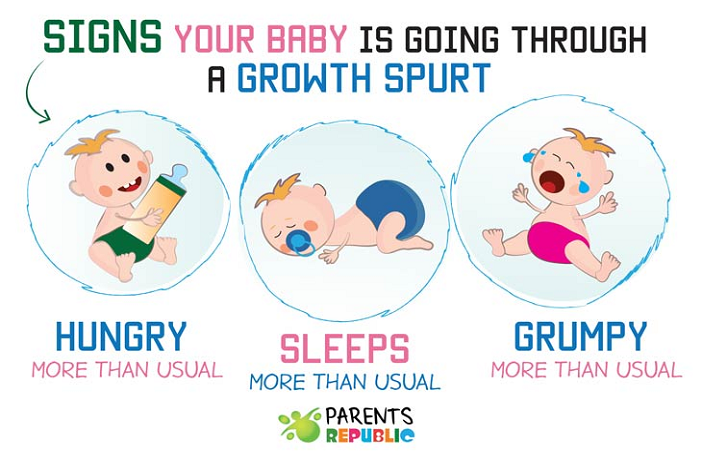
7 Reasons Why Babies Cry Even After Breastfeeding (Solutions Included)!
You have just breastfed your baby. You ensured that she had latched on correctly, and also fed her for sufficient time. “Now is the time to relax as she will soon fall asleep” so you thought. In this article we will find out why babies cry even after breastfeeding.
But wait… why is she crying again? Why is she so fussy? She wants to latch onto my breast again!
You have observed that she had latched well during breastfeeding, you checked that she was swallowing the milk, and your breasts are softer after nursing her.You check for other signs that indicate that your baby has fed enough. She is wetting 6-8 diapers a day, she passes yellow and seedy stools, and she is gaining weight.
Then what’s wrong? Why does she just doesn’t want to get off my breast?
Most of the breastfeeding mothers would have faced this situation, at least once. The little one just doesn’t seem to get enough of the mother’s milk. Many times, your little bundle of joy doesn’t seem to let go of your nipples. It would leave you wondering, if your baby has fed enough or if she is just pretending to be hungry or if there is anything wrong with her.
Dear Mommies, now let us discuss all the possible reasons on why your baby is still hungry after an adequate breastfeeding session.
Read more: Breastfeeding Positions For Your Baby
Why babies cry even after breastfeeding
#1. Growth Spurt
The common times for growth spurts are 7-10 days, 2-3 weeks, 4-6 weeks, 3 months, 6 months, and 9 months in the first year of the baby. It usually lasts for 2-3 days, sometimes extending to a week.
So Mommies, if your child is unusually fussy or feeding very frequently, check the calendar to determine if it is a growth spurt.
Solution
The best way to handle a growth spurt is to allow the child to take lead. Feed her as much as she wants. Since breastfeeding is a demand-supply process, your body will make enough milk to support her growth spurt. Ensure you take lots of water, and healthy diet to match the breastfeeding needs of your baby.

Image Source: Parentsrepublic
#2. Nursing for Comfort
Breastfeeding not only provides nutrition, but also comfort, security, and relaxation to the babies. This non-nutritive sucking is called “Comfort sucking”. This type of sucking is also important for the baby, as it provides a sense of contentment and also helps the baby settle into deep sleep.
Check for other signs that her stomach is full, like the number of wet diapers, weight gain, colour and consistency of the stools, to ensure she is well fed. However, it becomes a problem for the mother if the baby gets addicted to comfort sucking, as it can lead to sore nipples.
Solution
You can ensure that your baby gets a lot of skin to skin contact, to help her feel calm and secure. Avoid using pacifiers for this purpose. Pacifiers can cause ‘nipple confusion’, which interferes with successful breastfeeding. Also, pacifiers are known to cause tummy and middle-ear infections in babies.
This might also interest you: Making and storing the formula milk for baby
Effective Ways to soothe a crying baby
How to soothe a crying baby, Best ways to calm your crying baby…
#3. Inadequate Hindmilk Supply
The first milk sucked by your baby during breastfeeding session is known as the foremilk. It is lactose-rich and watery. Hindmilk is found at the back of the milk-producing cells and comes later in the feed. This is fat-rich and has a higher density as compared to foremilk. Hindmilk is the one which makes the baby feel full and content, after a breastfeeding session.
If your milk production is high, chances are that your baby’s tummy is getting full only by the foremilk. Hence, she will be hungry often and be fussy and feed frequently.
Solution
Consult a lactation consultant on how you can resolve the foremilk-hindmilk imbalance. Some of the steps you can take to correct this imbalance are:
- Increase the length of feeding on each breast.
- Express a small amount of milk before beginning the feeding to reduce forceful milk ejection reflex.

Image Source: Food & Nutrition Magazine
#4. Inadequate Milk Supply
Sometimes, a mother might not be able to make sufficient milk for the baby. Various reasons that can affect the milk production are hypothyroidism, hormonal imbalance, certain medication, etc.
If your baby’s urine has turned dark in colour and there is no weight gain, then it is a sign of an underfed baby.
Solution
Talk to a lactation consultant immediately, to know the ways of increasing your milk supply or supplement breastfeeding with formula feeding.
You can also try the tips given below to increase the supply:
- Warm compress – Sometimes low blood circulation in the breasts causes inadequate breast milk supply. Use a warm compress on your breasts before feeding, to increase the blood circulation.
- Include fenugreek seeds, fennel seeds, garlic, dill leaves, and green leafy vegetables in your diet.
Drink plenty of water.
Related: 10 Best Bedtime Story Books for Babies
#5. Baby has to pass Gas or Stool
Sometimes babies suck your breasts so that they can pass gas or stool! Sounds strange, isn’t it?
When babies find it difficult to pass gas or stool, they resort to sucking as it increases their gastrointestinal movement. When sucking is initiated, the enzymes signal the gastrointestinal tract to work harder, which in turn results in the baby easily passing the gas/stool.
Solution
If your baby passes stool/gas after few minutes of breastfeeding, please understand that she is using her natural instinct to throw the toxins out in an easier way. Some home remedies you can try to help your babies get relief from gas are below:
- Massage around the baby’s stomach.
- Make the baby do cycling action with its legs.
- Put asafoetida(hing) solution around the navel region.
To help the baby pass stools easily, try the below tips:
- Gently massage the baby’s tummy with warm castor oil.
- First apply coconut oil or castor oil on the baby’s tummy. Slightly warm a betel leaf (paan patta) and place it on the tummy for 5 minutes.
 Image Source: Tesco Baby Club
Image Source: Tesco Baby Club
#6. Tiredness
Yes, babies can get tired even though all they do is feed, wave arms and legs, cry and sleep. For these tiny bundles of joy, doing minor activities like these are tiring. The typical signs of tiredness are clenched fists, facial grimaces, grumbling, etc. All they want to do is to suck your breast for some time and doze off to sleep.
Solution
By all means, allow your little one to suck till she falls asleep.
#7. Yummy Dessert
Sometimes you may observe that babies who have started on solids, also would like to nurse after taking solid food. This is not an indication that they are hungry.
Solution
Just like we eat dessert at the end of a meal, babies like to nurse for few minutes as a round up to a meal.
Also Read: 8 Home Remedies to treat the diaper Rash in babies
Mommies, we just understood that your baby’s wails or fussiness, just after breastfeeding may be not just for hunger. Check all the above-mentioned points, to guess what your child’s fussiness is about.
Sometimes there might be circumstances when you can’t continue to allow your baby to keep nursing for long hours. For example, you might be attending a family function or you are traveling.
S0me other solutions which you can
- Take your baby to a different surrounding – Your baby’s attention will be diverted when she moves to new surroundings. If you are attending a family function, take her outside to get a breath of fresh air.
- Try music therapy – Yes, music has a very relaxing effect on the human brain. Play some soothing music to her. Avoid showing any colorful visuals on phone
- Gently rock your baby and sing to her – Well, you don’t have to be a star singer to sing to your baby. Your baby can easily recognize your voice, and hearing your voice itself, gives a sense of security and comfort for the baby.
- Allow your baby to go with grandparents or uncles and aunties – Yes, babies do recognize their family members, and they have their favorites too. Leaving your baby with her favorite grandparent or uncle or aunty, calms them down easily.
- Try swaddling if your baby is below 4 months – If your baby is below 4 months, hold it close and swaddle for sometime. Swaddling not only calms down the baby but the closeness to the mother makes the baby feel secure.
 Image Source: Mom.me
Image Source: Mom.me
Well, mothers have to do a lot of guesswork to understand what the baby really wants. Sometimes, it leaves us wishing that there was a baby language translator. So, when your baby cries or fussy after breastfeeding, have patience and try to zero down the cause, and pacify your baby. After all, nothing in this world can replace a mother’s love and nutritious breast milk.
Want to share your mommy experience with other moms through words or images? Become a part of the Moms United community. Click here and we will get in touch with you
null